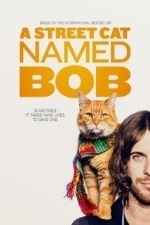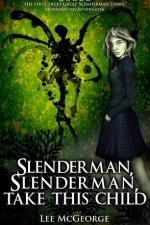Darren (1599 KP) rated A Street Cat Named Bob (2016) in Movies
Dec 18, 2019
Story: A Street Cat Named Bob starts as we meet homeless addict James (Treadaway) who spends his days singing for enough money that could get him a meal and a fix, when he overdoes, Val (Froggatt) gives him a chance to get emergency living to clean up with act. James is willing to make this happen and he ends up meeting a stray cat.
Reluctantly James decides to keep Bob the cat and learns to grab a new lease for life and that as a double act they could achieve things he could only dream of as a musician, as well as finding love in one of the neighbours Betty (Gedmintas).
Thoughts on A Street Cat Named Bob
Characters – James is a homeless drug addict who has an overdose. He is given a big chance to go on the path to recovery with an emergency home, where he meets a cat and suddenly he starts to see his life turn around, his busking lifestyle sees him make money, he meets a new woman and can support himself, he will need to go through the toughest test of his life, if he wants to break free of his addictions. Bob is the ginger cat that turns up in James’ life, he won’t leave his side as he helps him clean up his act. Betty is the neighbour that becomes James only human friend, she will show him about vegan life becoming a love interest, even though she has seen how being an addict has taken away somebody in her life before. Val is the person that pushes James into the program, believing he can change and will change, she supports him through the whole process.
Performances – Luke Treadaway in the leading role is brilliant to watch, he shows us just how desperate James is to turn his life around and what he must go through. Ruta Gedmintas and Joanne Froggatt are both great in the supporting roles in the film too.
Story – The story here follows a homeless drug addict that gets his life turnaround thanks to the help of one person and a mysterious ginger cat that gives him happiness. This is based on the real story of the man James and Bob the real cat, we see the recovery process, just how difficult it can be for somebody who is trying to turn their life around. We can see how the ending will come about because there is a book about the turn around, even though it does become entertaining throughout the film.
Biopic/Comedy – The biopic side of this film does show how James does turn his life around, it is shown in a way that could see the struggle he will be facing. The comedy of the film does give you a couple of laughs with how Bob interacts in life.
Settings – The film is set in London which does show how the culture of the homeless people being able to survive around town that is filled with a drug culture that could end their fight.
Scene of the Movie – First day out with Bob.
That Moment That Annoyed Me – Nothing really.
Final Thoughts – This is a delightful little comedy that brings to life one man’s journey to salvation with his new friend Bob the cat.
Overall: Feel Good Movie.
Wittsend (43 KP) rated Slenderman, Slenderman, Take this Child in Books
Aug 2, 2017
NOTE: A few may find the sexual element of this book unsettling; however, I think the author was tactful in writing about the taboo subject in this horror novel and handled it very well.
Nicole Hadley (380 KP) rated On Our Street: Our First Talk about Poverty in Books
Jun 18, 2018
A direct and clear way to talk about the issues of poverty, I like how it's framed as questions with the answers, nice photographs from around the world illustate the points well.
I received this ARC from Orca Book Publishers via NetGalley in exchange for an honest review.
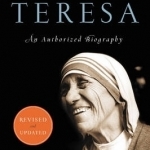
Mother Teresa: An Authorized Biography
Book
Manyhave called her a saint. She won the Nobel Peace Prize in 1979 and India'shighest civilian...
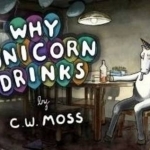
Why Unicorn Drinks
Book
In "Unicorn Being a Jerk", author/illustrator C.W. Moss introduced us to the true nature of...
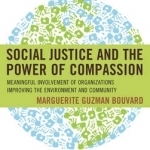
Social Justice and the Power of Compassion: Meaningful Involvement of Organizations Improving the Environment and Community
Book
Social Justice and the Power of Compassion looks at how a single person, or a small organization,...
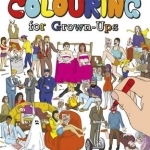
The Ultimate Colouring for Grown-Ups
Book
With more than 150 challenging (and snarky) activities, the The Ultimate Colouring For Grown-Ups...
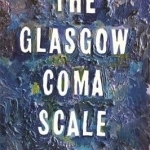
The Glasgow Coma Scale
Book
Lynne is a young woman who once dreamed of being an artist, but whose promotion to supervisor at a...
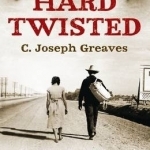
Hard Twisted
Book
Lucile Garrett is just thirteen when she meets Clint Palmer, a charismatic stranger who will forever...
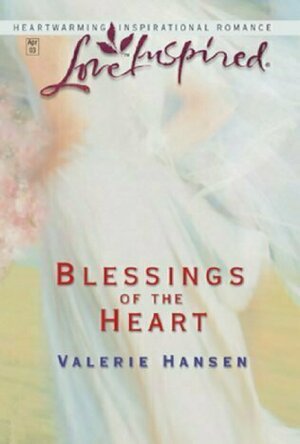
Blessings Of The Heart
Book
Writer Brianna Walker had moved to the Arkansas hills for a little peace and quiet. But the stormy...
